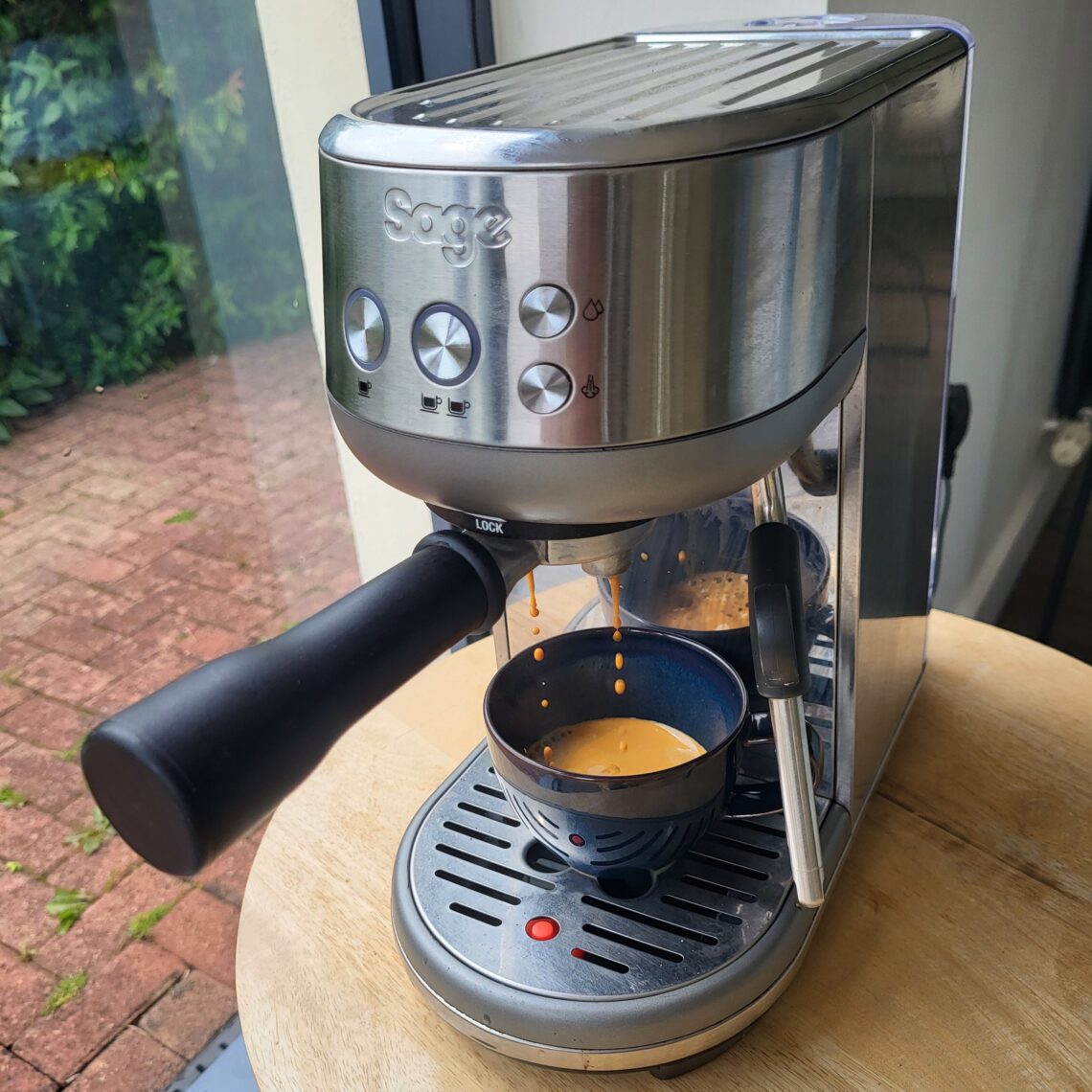Gary Finnegan
I had my first cup of coffee on a Friday evening in mid-1990s Dublin. I couldn’t sleep that night — perhaps it was the excitement.
Coffee was, to my teenage mind, a mark of sophistication.
In powdered form, it was instant, easy, affordable. The television ads made it look like silken chocolate in a cup. The reality was disappointing, but there was no need to share this opinion with anyone.
My uncle was the first to sell me on coffee. He had his own twist on how to make it: he added a dash of milk to the granules, stirred it into a paste and then added boiling water. While every other aspiring sophisticate was splashing water into brown dust, we knew a better way.
***
Fast forward a few decades and my wife and I became so attached to our one-touch coffee maker that we used to bring it with us on holiday. You know the type: little aluminium pods that load into the machine like a cartridge in a shotgun. Pull the lever to clamp it into place, push the button and give it a few seconds. Watch a light brown liquid flow and settle like a baby Guinness.
It was perfect.
Until it wasn’t.
The coffee didn’t quite match up to the barista-made cups of flat white perfection available on every street corner in modern Ireland.
I was glad when the old capsule cruncher broke after eleven years of service. It had been frustratingly reliable, one of the few devices that refused to become obsolete.
The search for the ultimate coffee experience was overwhelming, endless. Glorious.
We settled on an espresso machine with a separate grinder. You simply must grind fresh beans if you’re serious about coffee, I was told.
And we are deadly serious. About a drink that I wasn’t all that gone on back in 1995.
Now I grind beans, tamp the powder into the filter basket while the milk froths, then make a double espresso and gently finish with milky microfilm. The sequence is repeated to make a second cup, because coffee’s still best when shared.
It’s messy. It’s slow. It’s complicated. It’s perfect.
***
How did we come to swap our one-button machine for this avoidable complexity?
It’s like the story of how ready-made cake mixes took off in the US in the 1950s. All you had to do was tip the cake powder into a bowl, add water and stir. Easy.
But early sales were sluggish. People felt useless, like they weren’t involved; like they didn’t add value. So the mix was reformulated, requiring the homebaker to add an egg. This — and the fact that the fresh eggs made for better cakes — did the trick.
It reminds me of how my uncle added a minor (pointless) complication to his cup of instant coffee. Do we do it in pursuit of a better cup of coffee — or because we crave a central role in its production?
Something to think about over a cappuccino.

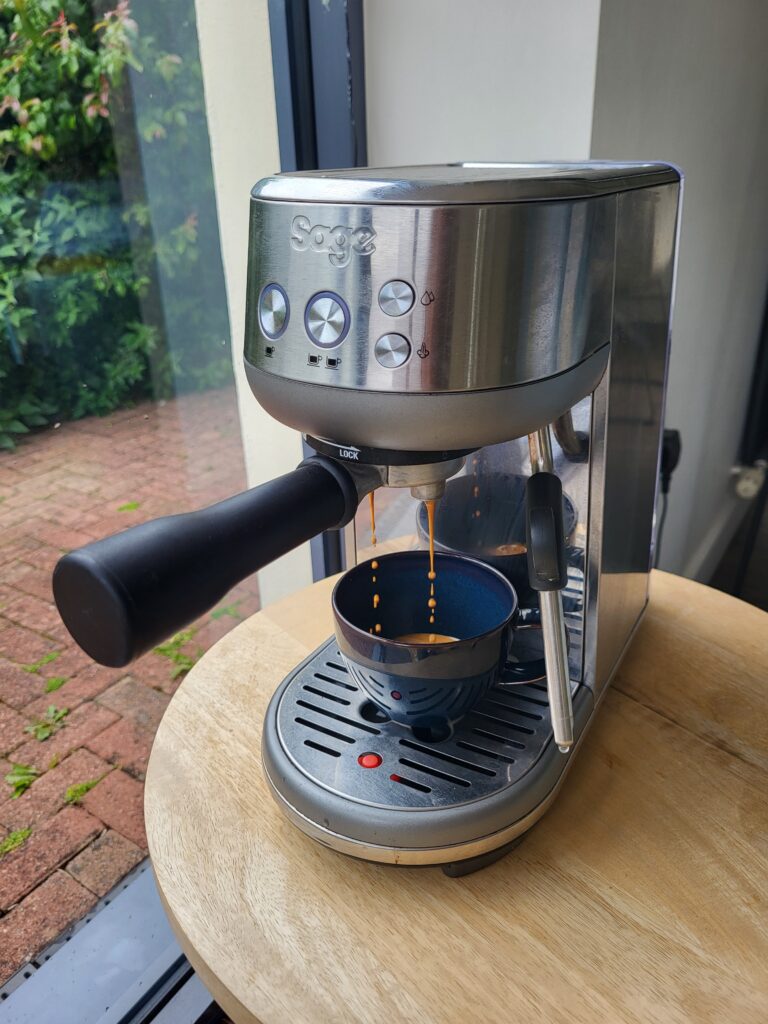
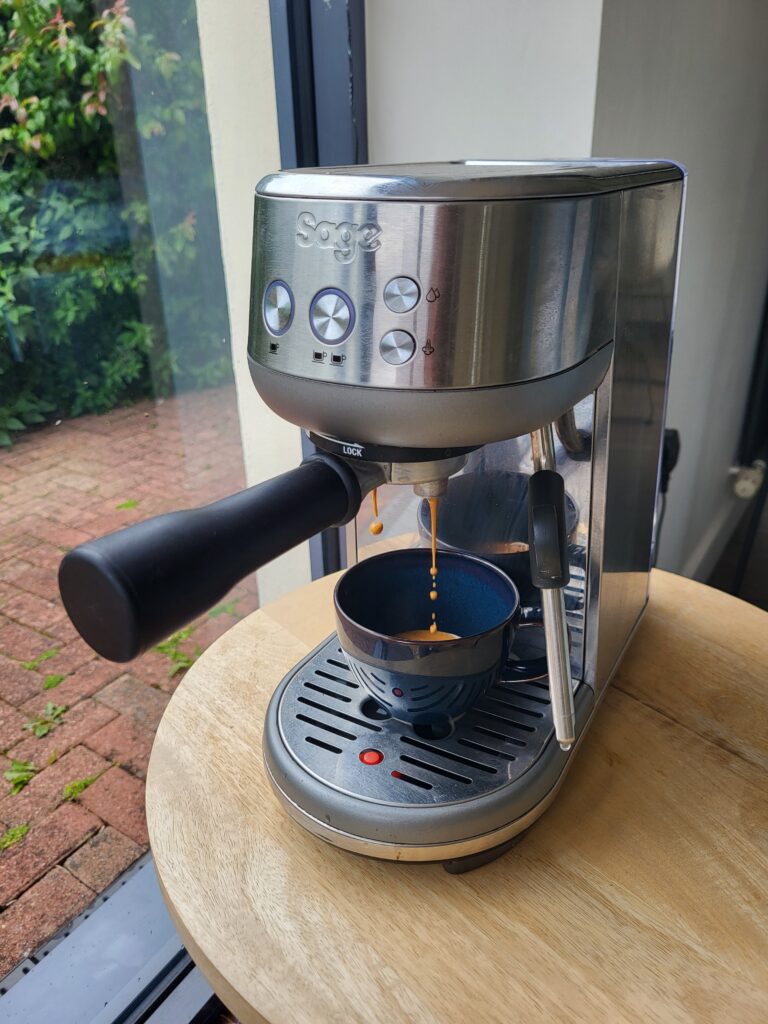
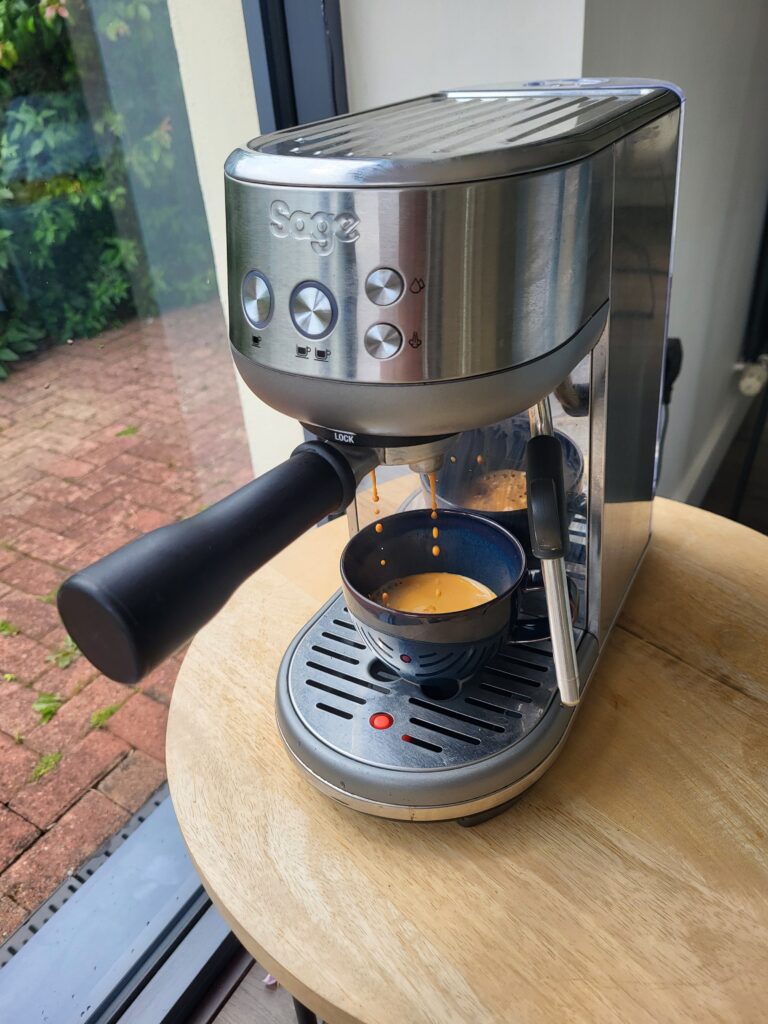
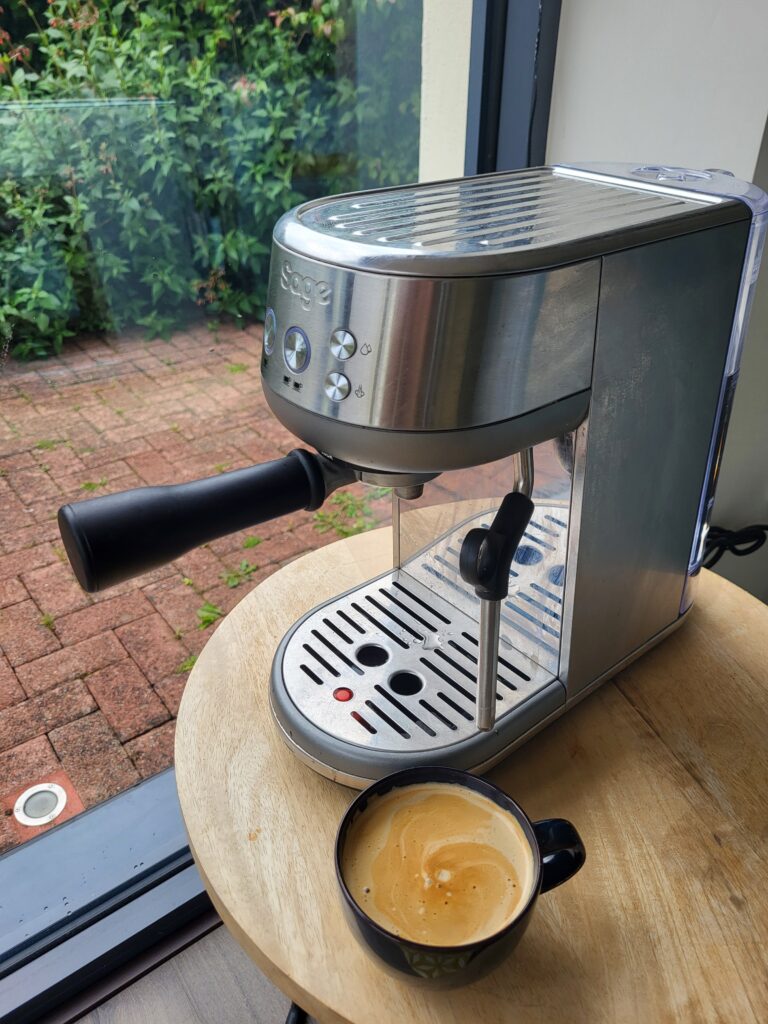

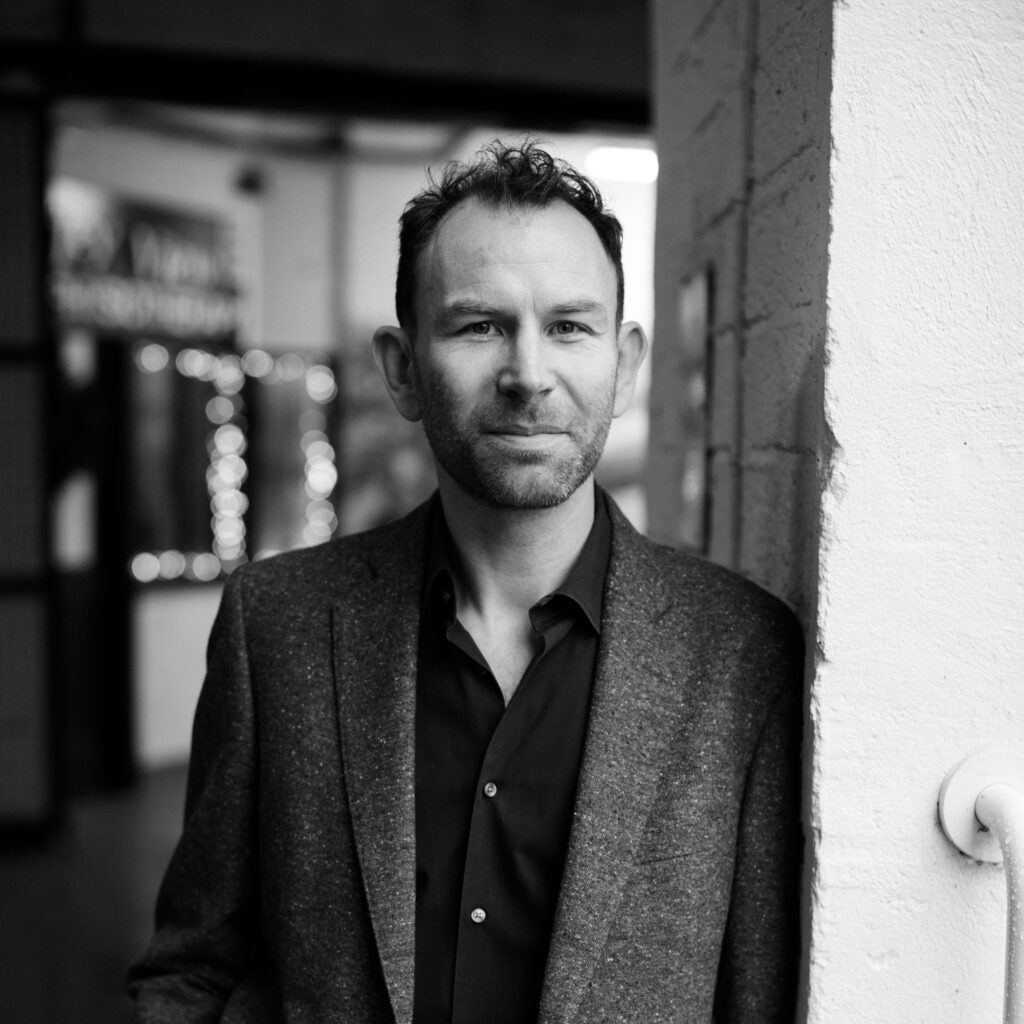
Gary Finnegan‘s fiction has appeared in The London Magazine, Litro, Howl, The Ogham Stone, Ropes, Bull, Frazzled Lit and The Honest Ulsterman. He has two Pushcart Prize 2025 nominations and is the author of a non-fiction book about China. Gary was one of twenty writers selected by PEN Ireland and the John Hewitt Society for the Freedom to Write Project 2024. He has an MA in creative writing at Maynooth University and is working on a novel. X: @finnegag | https://linktr.ee/garyfinnegan
Photos by Gary Finnegan
